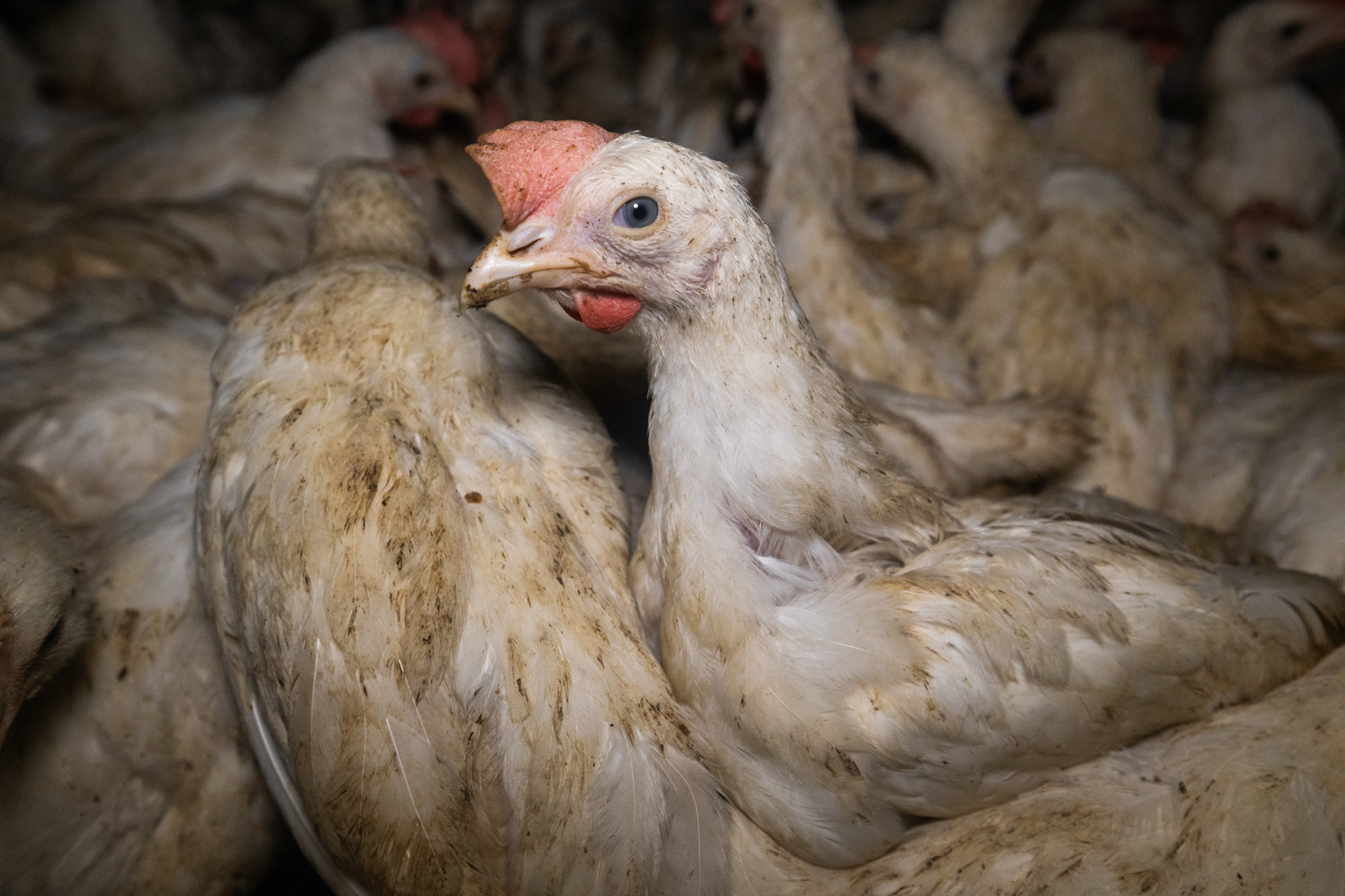
Wir haben Ihre Anfrage erhalten. Vergessen Sie nicht den Bestätigungslink anzuklicken.
Noch mehr bewirken:
Unterzeichnen Sie unsere Petition, um tierfeindlichen Lobbyismus zu stoppen!

Released on 03.07.2023
For the first time, the sad living conditions of German brother roosters in Poland have been revealed. The investigation, which was leaked to Animal Society, shows: The animals eke out a short, sad existence in factory farming. A new branch of factory farming. ZDF WISO reported on July 3rd 2023.
Since 2022, it is forbidden to kill the male siblings of laying hens in Germany directly after hatching. Despite existing alternatives, millions of roosters are raised and slaughtered for their meat in the so-called brother rooster rearing since then, many of them in Poland.
Sign and share our Petition for a ban on chick killing at EU Level!
Within a very short period of time, after the ban on chick-killing in Germany, a complex system of industrial factory farming has been formed, which extends across various European countries:
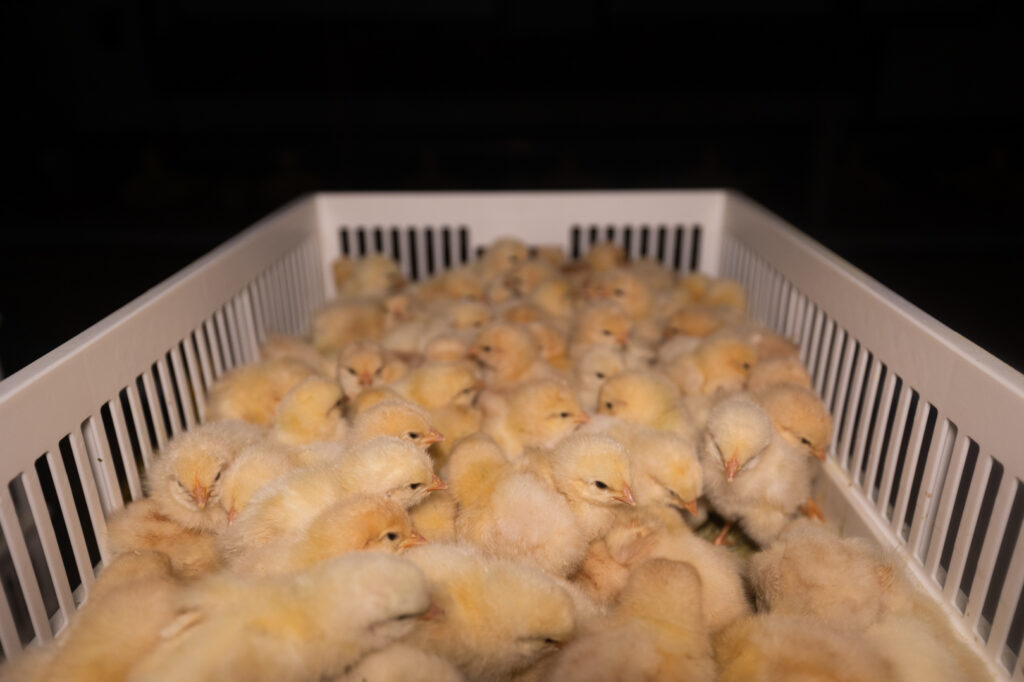
The chicks are transported long distances from Belgium to Poland, as these are the brothers of KAT-certified laying hens for the German market. According to KAT-certification, the male siblings of laying hens from foreign hatcheries who are sold to Germany must also not be killed. If they are not sorted out through in-ovo sexing before hatching, this will result in brothers from Belgian and Dutch hatcheries ending up in Poland for rearing.
Some chicks already do not survive this transport or die directly after arrival from exhaustion.
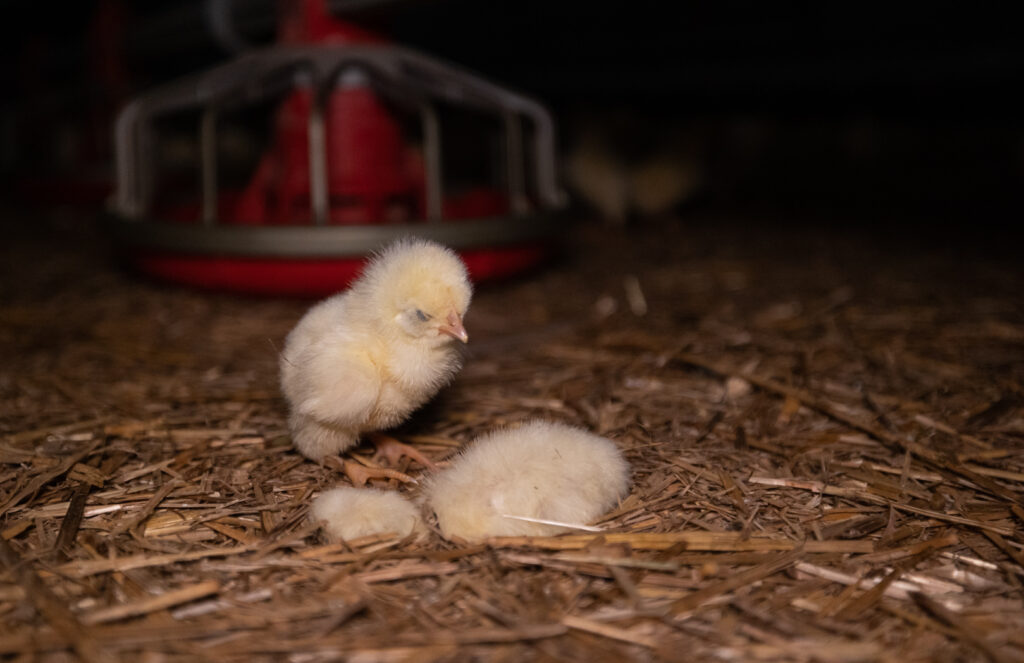
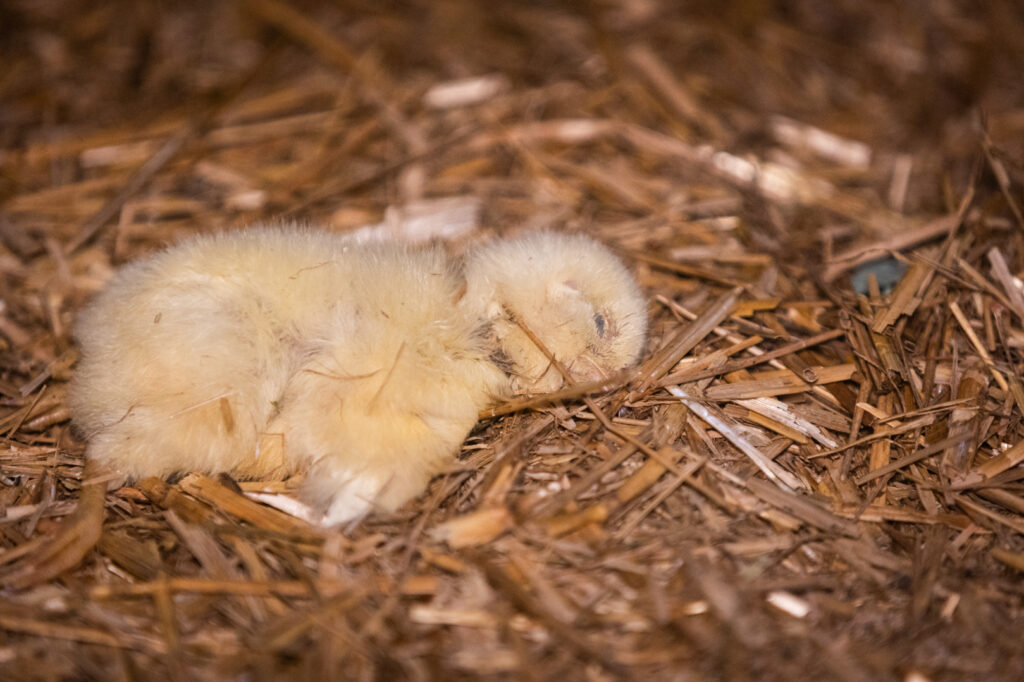
The animals live only 2.5 months in the farms in Poland and are then slaughtered. Brother rooster rearing sounds like the roosters are allowed to live. In reality, they are killed after a few weeks spent in dark, cramped sheds. This becomes even more absurd when we consider that there is not even a demand for the meat of brother roosters in Europe. We repeatedly heard that the meat is exported to African and Asian countries.
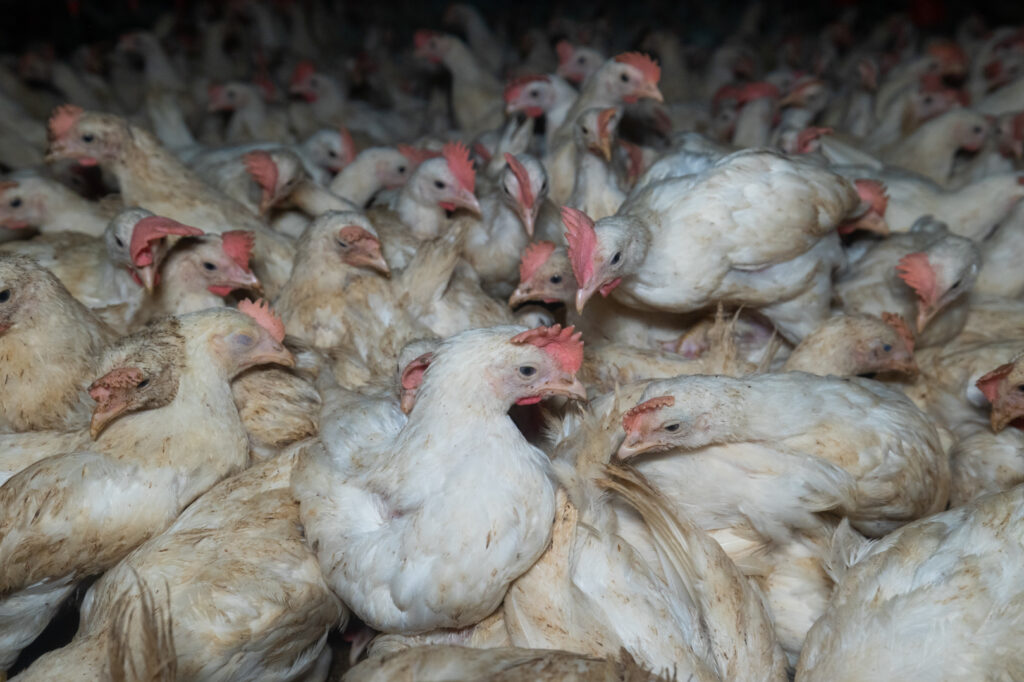
Although the KAT-certification is supposed to ensure that the animals live under „better“ conditions, the keeping of 20 animals on one square meter is also permitted here – less than one DINA4 sheet per animal.
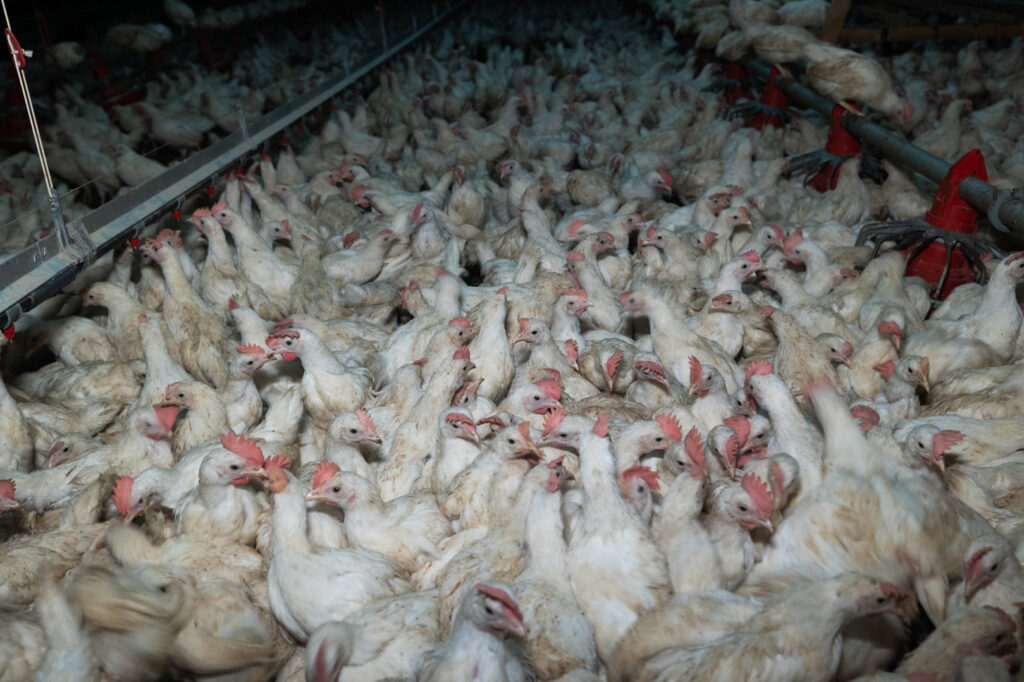
Again and again we find sick, injured and dead animals in between and the animals are treated roughly. We see inflammation of the eyes and cloaca, weak animals suffering apathetically and fluffed up in silence, as well as bald patches.
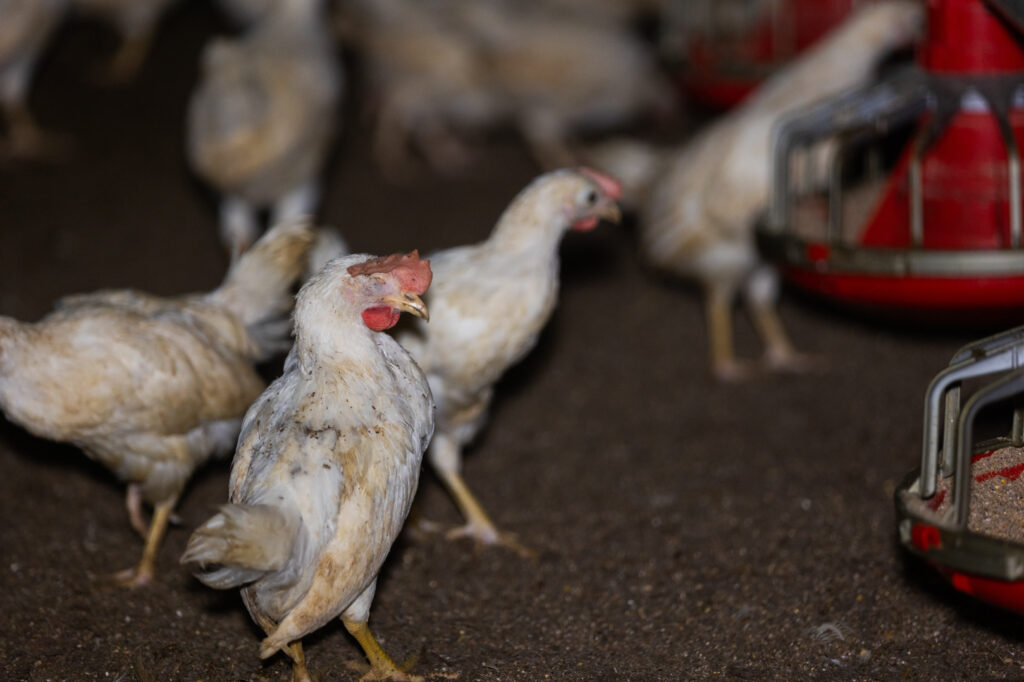
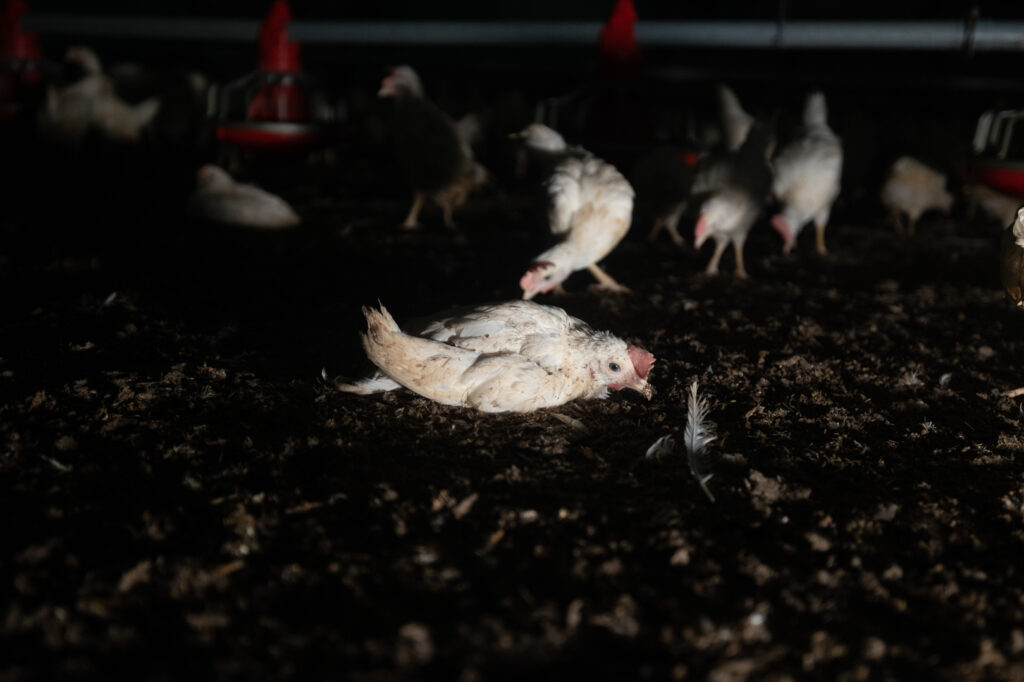
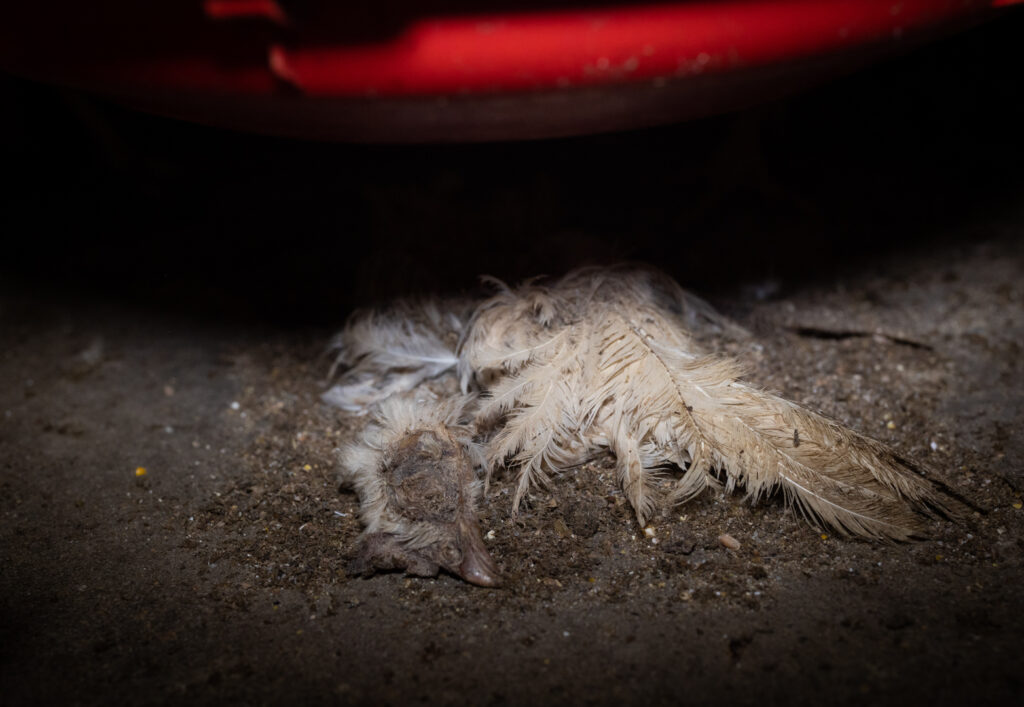
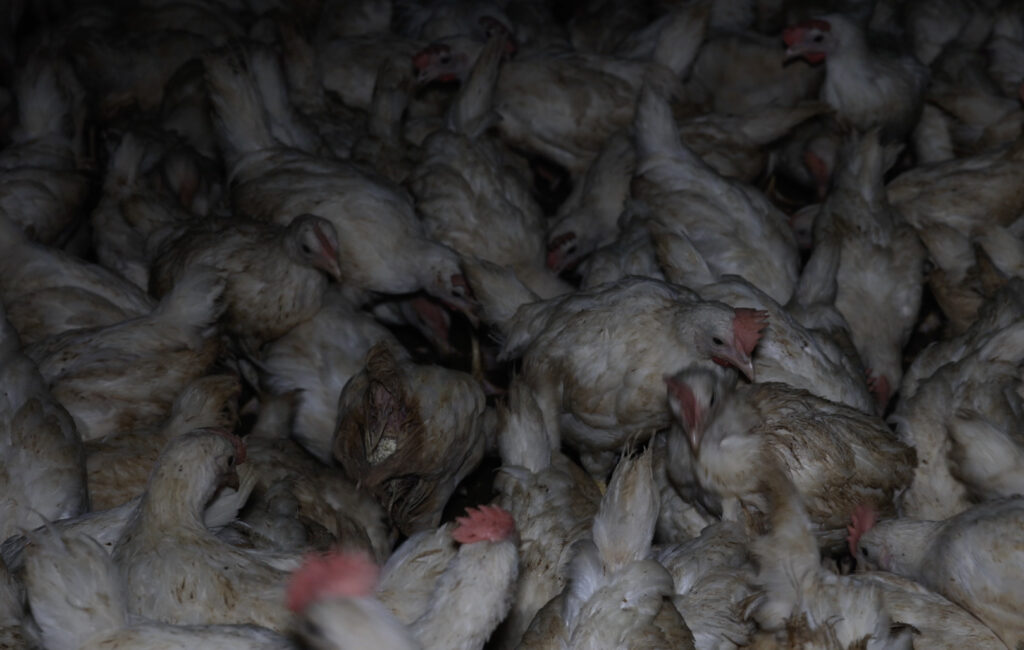
Only at the beginning litter is put onto the floors: this leads to the fact that after a short time the floor is heavily soiled with feces and lumps of feces form on the feet of some animals, which restrict the freedom of movement and can lead to inflammation.
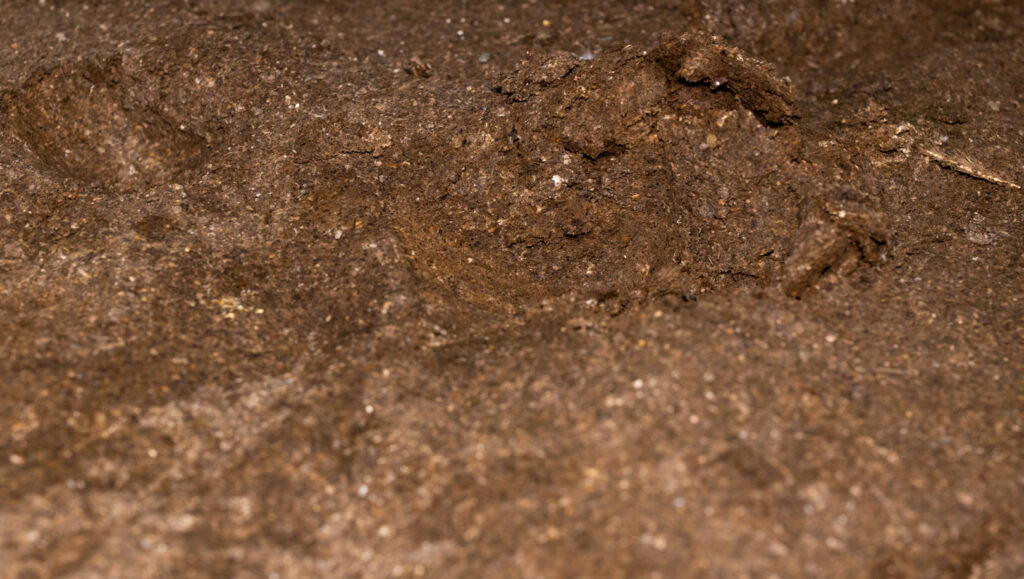
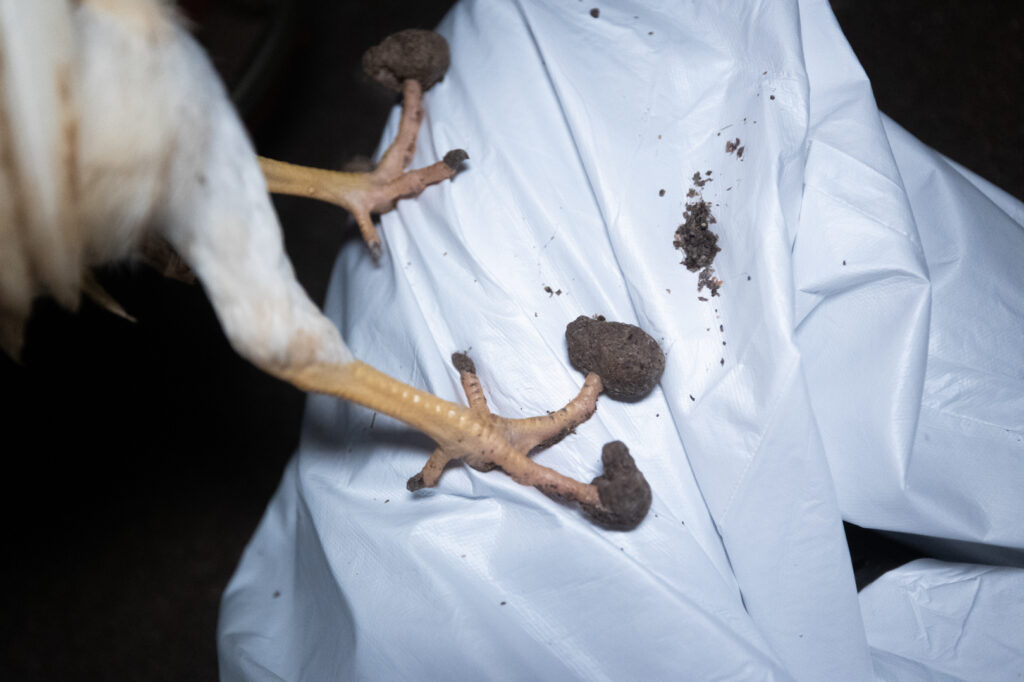
When the animals are captured for transport to the slaughterhouse, we can observe that they are roughly caught and handled and literally stuffed into the narrow transport boxes.
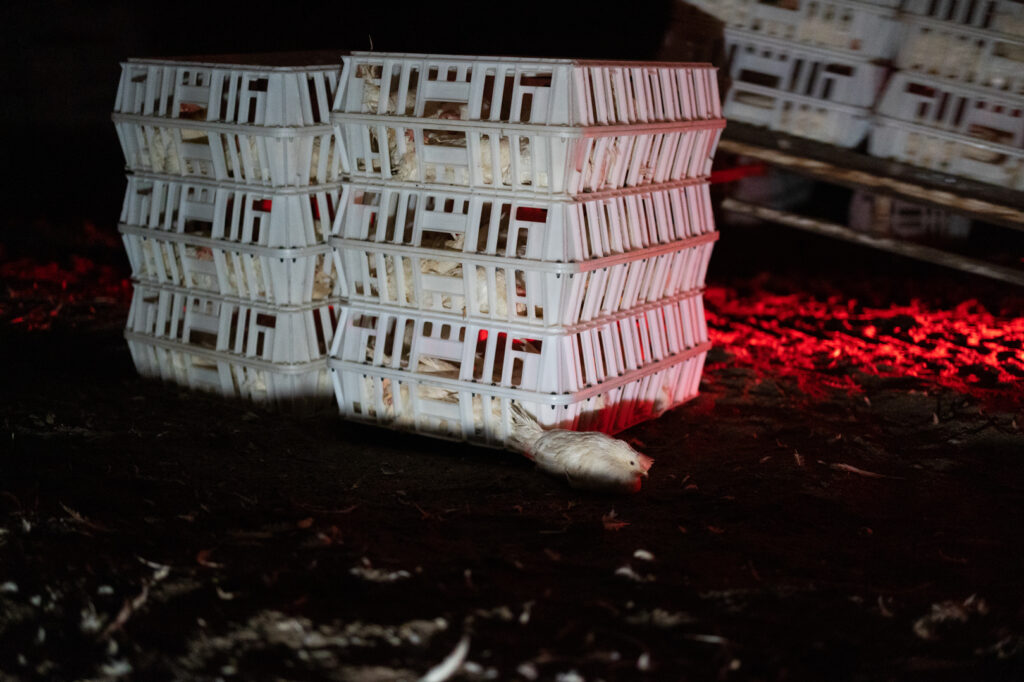
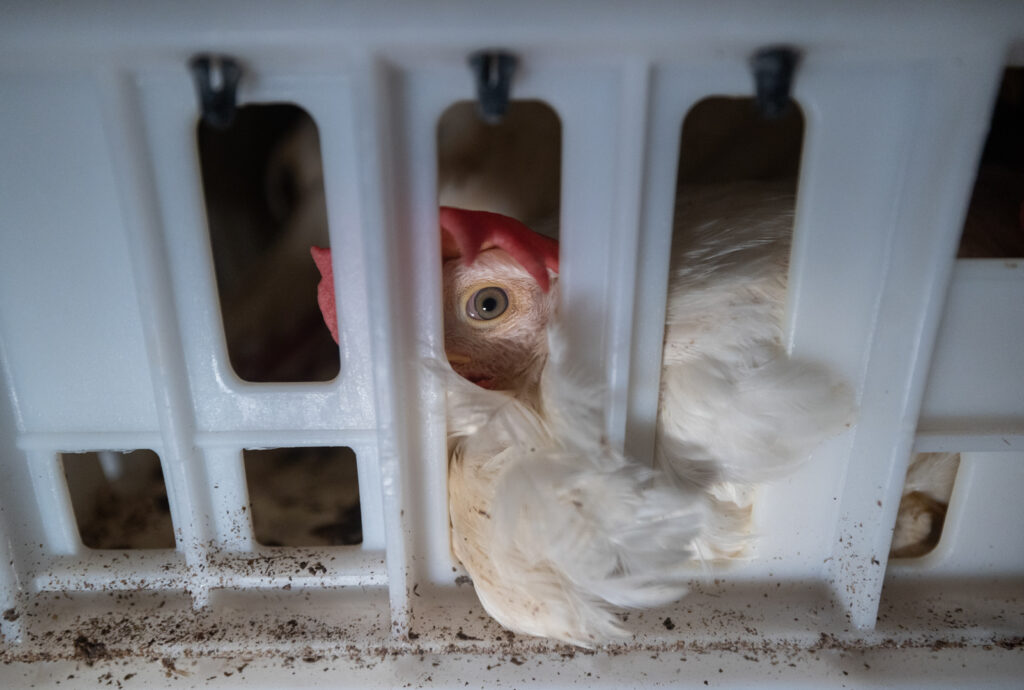
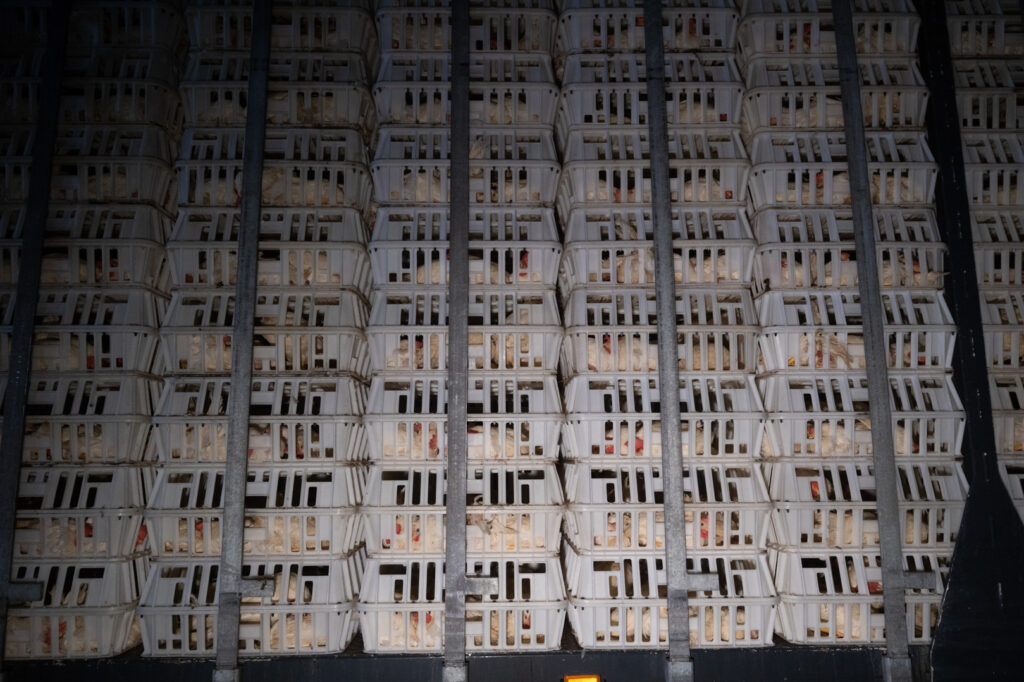
„Brother rooster rearing“ suggests a different image: many of the labels that advertise the rearing or even „rescue“ of male chicks show roosters in green fields, often together with hen and chicks. As we can see, this does not correspond to reality. Consumers are given a completely different picture.
If you compare the life of the brother roosters with a fulfilled chicken life and images of healthy, happy animals, it quickly becomes clear: What the brother roosters experience in their short lives has nothing to do with „animal welfare“ and the image that is conveyed to consumers.
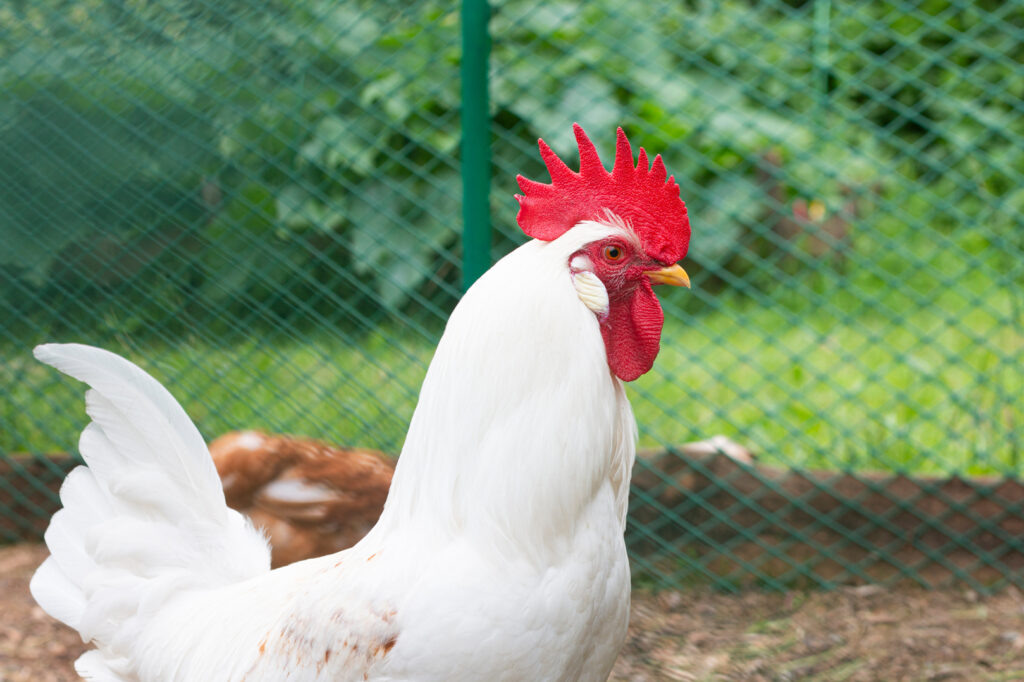
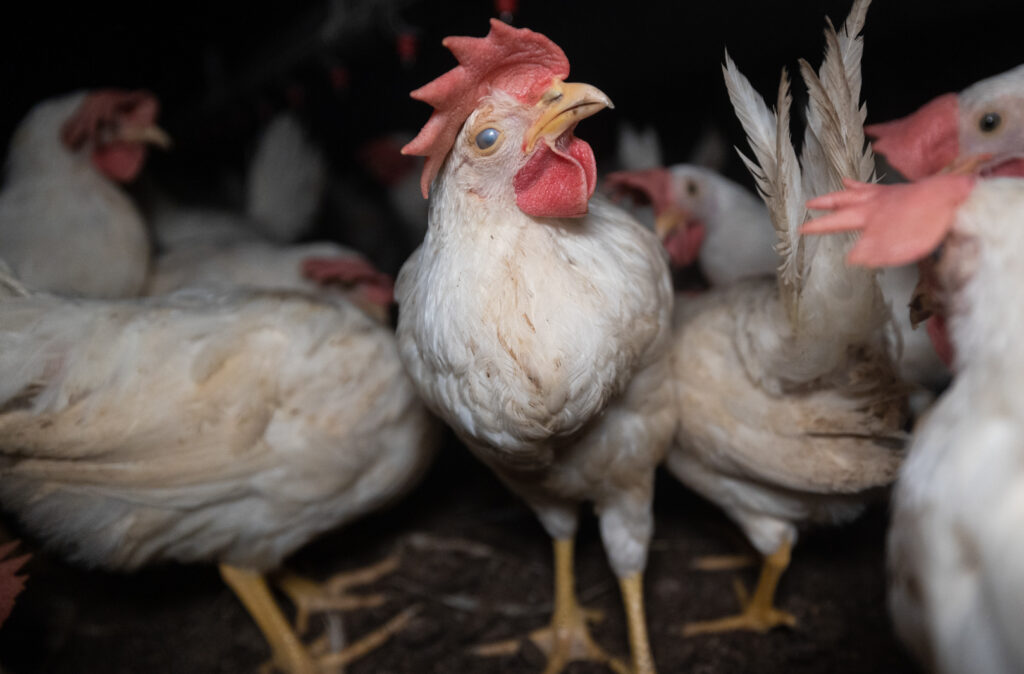
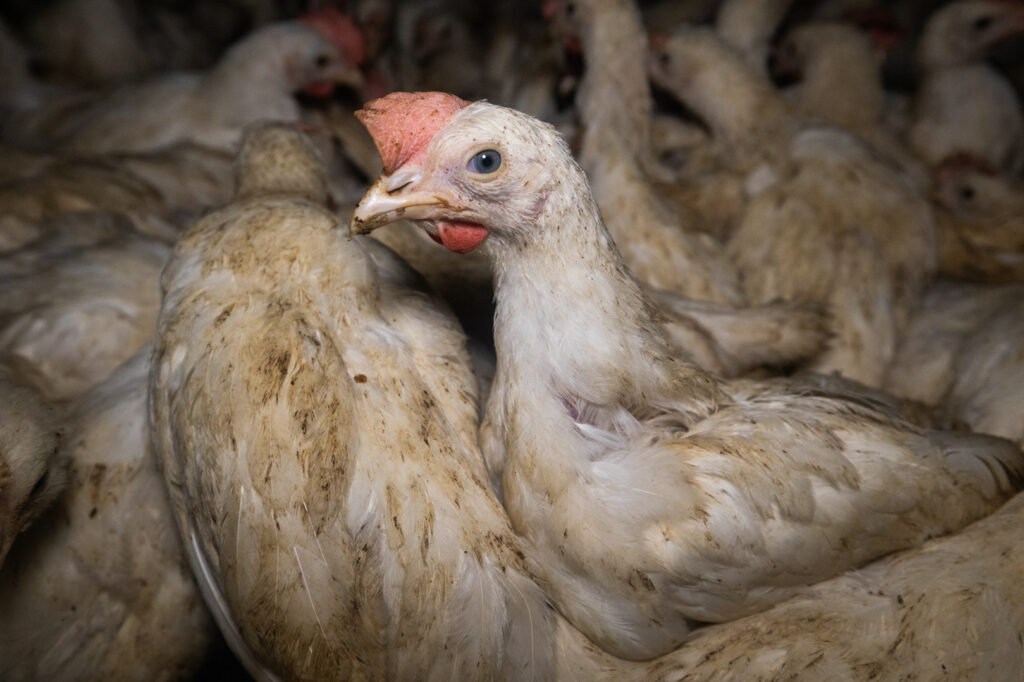
Up to now, reporting on the rearing of brother roosters in Poland has been dominated by rumors and conjecture: it was said that the husbandry conditions there were particularly bad. Now, for the first time, it has been possible to show how the roosters live in Poland. In retrospect, one thing is clear: The conditions are just as bad in Poland as in any other European factory farm. The fact that the animals have to live there at all, only to be killed a short time later, is absurd. Quite simply, animals in such stables do not have a good or fulfilling life. If you compare life in factory farming with the interests and needs of chickens, it quickly becomes clear that the animals suffer. And this despite the fact that there are alternatives that can avoid both the cruel killing of chicks and the dreadful rearing of roosters.
Animal Society is campaigning for an EU-wide ban on chick killing. The German ban was an important step for animal welfare and must be extended to all EU countries. Because there is no question about it: The cruel killing of chicks is not an option. However, Animal Society clearly positions itself against the rearing of brother roosters. Because it merely delays the killing of the chicks by a few weeks. Before that, the animals go through long transports and a dreary, short life full of stress and confinement. There are alternatives to chick killing and brother rooster rearing, first and foremost plant-based egg alternatives. But also the determination of the sex within the egg could directly avoid suffering. With an EU-wide ban, these alternatives could be better promoted and funded to end both, the unnecessary killing of chicks and the rearing of roosters.
Sign and share our Petition for a ban on chick killing at EU Level!
Contact for inquiries:
carlotta.heinemann@animalsociety.de